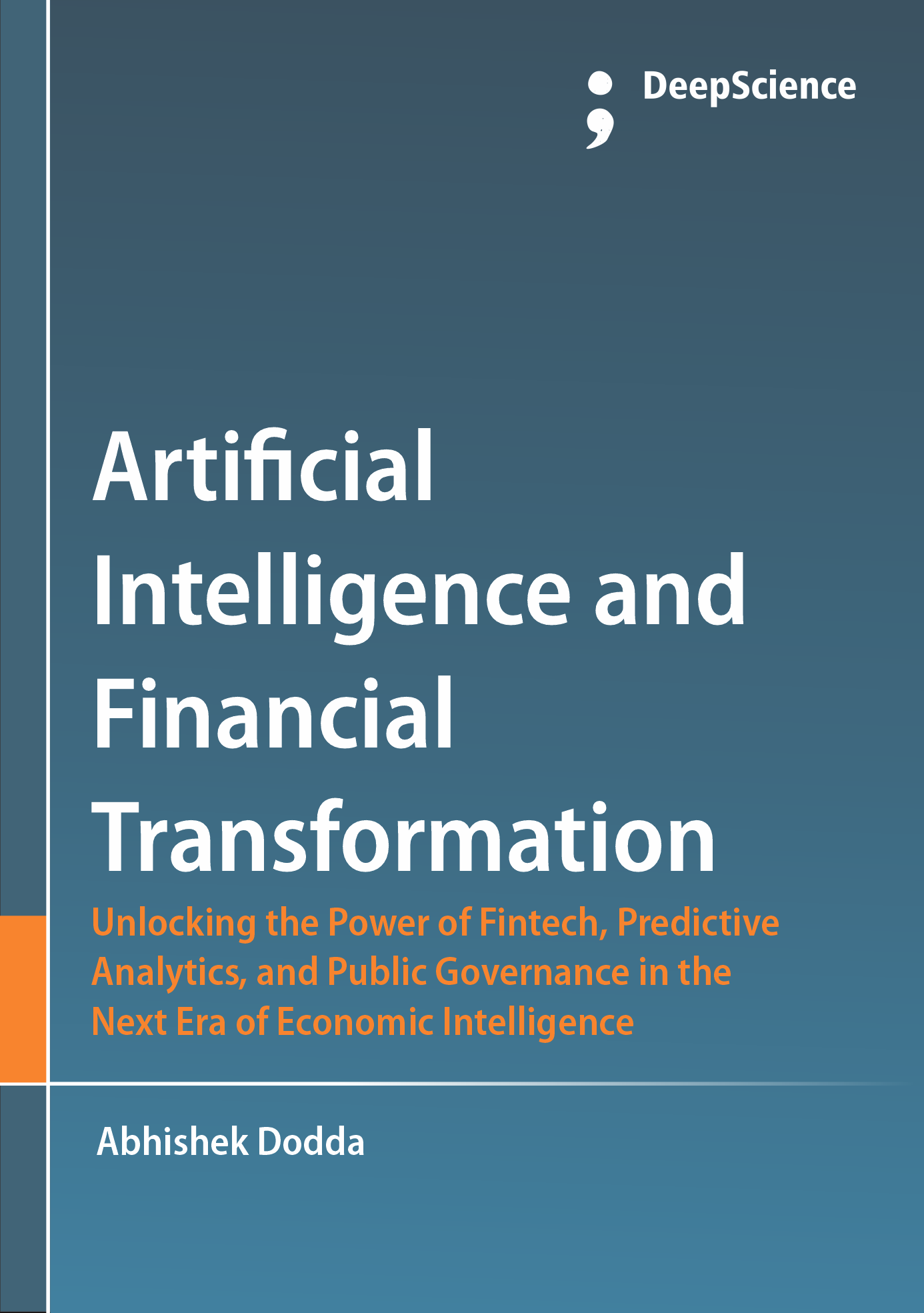Artificial Intelligence and Financial Transformation: Unlocking the Power of Fintech, Predictive Analytics, and Public Governance in the Next Era of Economic Intelligence
Keywords:
Artificial Intelligence, Financial Technology (Fintech), Predictive Analytics, Blockchain, Digital Payments, Machine Learning, Risk AssessmentSynopsis
The global financial ecosystem is undergoing a profound transformation, one driven by the accelerating convergence of artificial intelligence, fintech innovation, and data-powered public governance. Artificial Intelligence and Financial Transformation: Unlocking the Power of Fintech, Predictive Analytics, and Public Governance in the Next Era of Economic Intelligence explores this dynamic intersection, where technology not only enhances operational efficiency but redefines how economies are managed, regulated, and empowered. In a world increasingly defined by digital transactions and decentralized finance, AI and predictive analytics are becoming indispensable tools for institutions seeking to navigate volatility, mitigate risk, and anticipate market behavior. Meanwhile, governments and regulatory bodies are leveraging intelligent technologies to design responsive policies, ensure transparency, and foster trust across the financial value chain. The rise of intelligent economic systems is not just a possibility—it is fast becoming a necessity.
This book is designed for finance professionals, AI researchers, policy strategists, academics, and students eager to understand how digital intelligence is reshaping economic landscapes. It offers a multi-dimensional perspective on the evolution of financial services, featuring in-depth analyses of AI-enabled fintech applications, risk modeling frameworks, digital regulatory architectures, and governance mechanisms built on data-driven insights. The chapters herein blend theory and practice, spotlighting case studies from global financial hubs, innovations in central bank digital currencies (CBDCs), fraud detection algorithms, and real-time regulatory tech (RegTech). The ethical, legal, and social implications of these shifts are also critically examined, ensuring a balanced discourse on the promises and perils of algorithmic finance.
As we step into a future where economic resilience and innovation go hand in hand, this book invites readers to reimagine finance—not as a static system, but as an intelligent, adaptive force for societal advancement.
Chapters
-
Fintech disruption and innovation: Transforming the future of global financial services
-
Integrating advanced artificial intelligence into financial products, services, and operations
-
Understanding agentic artificial intelligence: Autonomous digital agents and their impact on workflows and decisions
-
How generative artificial intelligence is revolutionizing business intelligence, creative processes, and law
-
Building secure artificial intelligence systems: Defending against vulnerabilities in intelligent technologies
-
Artificial intelligence governance in action: Balancing innovation, transparency, and regulatory compliance
-
The future of digital payments: Blockchain, mobile transactions, and decentralized finance
-
A deep dive into credit card networks, fraud detection, and artificial intelligence - driven risk assessment
-
Enhancing fintech products with data engineering and machine learning pipelines
-
Driving public sector innovation with generative artificial intelligence for services, compliance, and efficiency
-
Artificial intelligence-powered transformation across retail, government, and enterprise institutions
-
The role of artificial intelligence in law enforcement: Surveillance, ethics, and predictive












